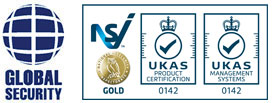Many businesses across various industries have had to grapple with a great deal more of their workforce, if not all of their employees, working from home in recent months due to the Covid-19 pandemic.
This has brought its own risks in terms of security, and it appears that businesses in the UK have turned to the likes of multi-factor authentication in a bid to boost the security of their IT systems during this period.
HR News reported that some 70 per cent of UK businesses have implemented multi-factor authentication and virtual private networks (VPNs), according to a survey by Centrify.
Among the multi-factor authentication being utilised are a password and coded text to a known phone number, a hardware key or biometric confirmation through the use of a fingerprint scan. However, the research found that nearly half of those questioned felt that multi-factor authentication could impact productivity.
As a result, 60 per cent of the business decision makers polled said they supported the use of biometric data, with 66 per cent stating that they would feel more secure if staff were to use fingerprint recognition or facial ID as opposed to a traditional password.
Vice president at Centrify Andy Heather told the news provider that firms need to “weigh the risks they are facing with these heightened threats very carefully and take any and all measures available to ensure access is granted only to authentic users”.
Speaking to Raconteur recently, executive director of the FIDO Alliance Andrew Shikiar said that although the communication infrastructure is broadly in place to support the significant shift to remote working, firms need to make sure they don’t forget about security in “this rush to enable remote work”.
If you’re interested in exploring fingerprint access control for your organisation, contact us to find out more about our services.

Leave A Comment